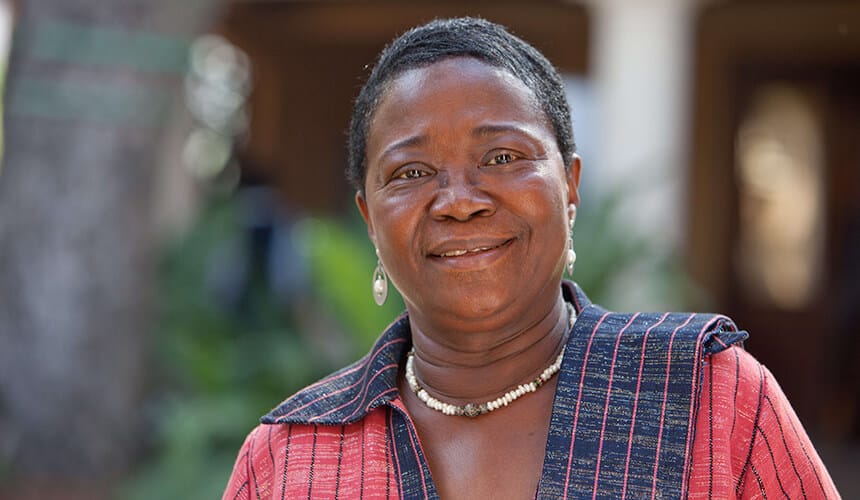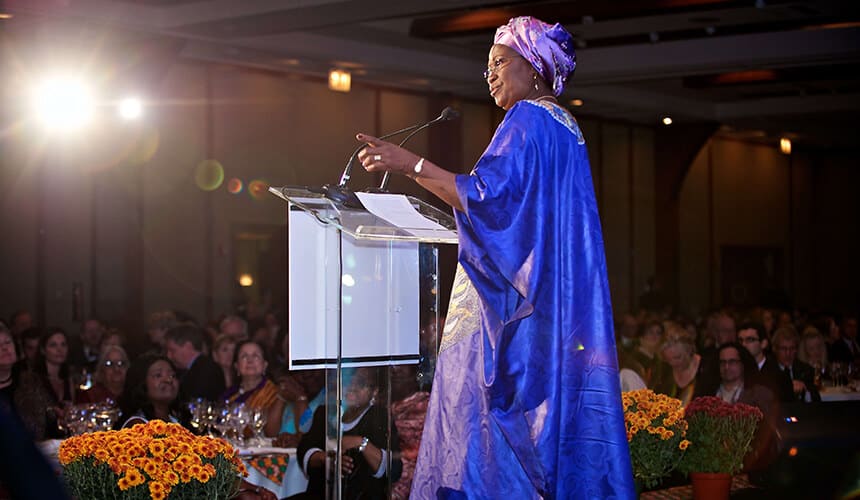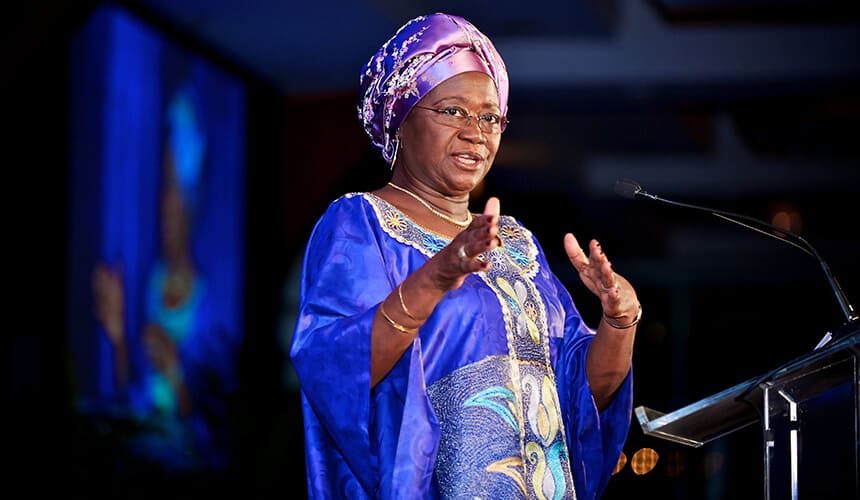Florence Chenoweth
Champion for Food Security
A thread has run through the storied life of Florence Chenoweth MS1970, PhD1986: no one in this world should go hungry.
Long a champion for Africa’s poor, Chenoweth’s work has focused on the essential nature of agricultural productivity. She first gained a voice on the world stage in 1977, when she became Liberia’s minister of agriculture — the only female to hold such a post in Africa. But when her country erupted in civil war in 1980, she walked her children to safety in Sierra Leone.
In time, she returned to the University of Wisconsin, where she had earned her master’s degree in agricultural economics, to pursue a doctorate in land resources. She maintained strong ties to the university, leading UW–Madison’s Human Rights Initiative, receiving an honorary degree, and holding a semester-long appointment as a distinguished international visitor in 2007 (during which the UW’s international studies dean noted her “expertise in international development issues and her inspiring activist work to alleviate world hunger”).
From The Park
The world is waiting for us … to remove the obstacles that keep us from ensuring that every man, woman, and child lives a life free from hunger and poverty.
Source: Used by permission of copyright holder.
Chenoweth’s first stint as Liberia’s minister of agriculture was stormy. In 1979, she proposed raising the price of subsidized rice, seeing the increase as an incentive to keep farmers working the land. But riots — complete with widespread looting — broke out, and her political opponents had her replaced. She returned decades later in 2009 to serve as Liberian president Ellen Johnson-Sirleaf’s agriculture minister, holding the post until 2015.
Chenoweth’s career as a scholar on food security and as someone who doesn’t shy away from the challenges of developing policy has taken her to key positions, including serving as the Food and Agriculture Organization’s liaison to the United Nations. In 2011, The Hunger Project named her the Africa Prize laureate for improving the livelihoods of women farmers. She has argued that government must support farmers in her home country, noting that food production is critical for Liberians, one-third of whom are undernourished.
Human health and human rights are interwoven, Chenoweth believes, and her causes have included efforts to contain the spread of Ebola and address the AIDS pandemic. “Even in the darkest of times,” she has said, “I see hope at the end.”
 66° F
66° F

